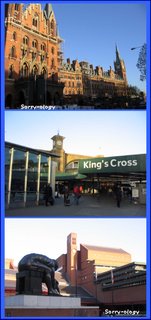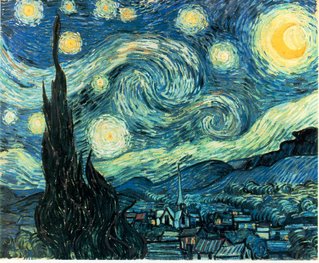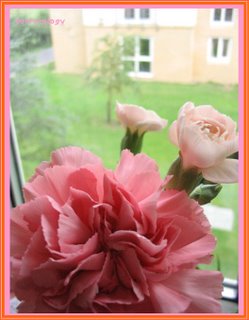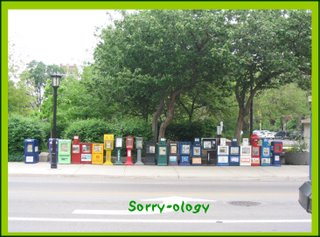'Then you are very patient.'
It is my conversation with a worldly-famous and well-respected scholar (abbreviated as S) in a conference dinner,
*******************************
S: When I was in the E dept. in H Univ., H the postcolonialist was invited to take a position there. The faculty in the department was wondering why he was invited since he hadn't had a single book published. You know, in order to be in H Univ. you have to publish at least 6 books. Some faculty answered, 'but he had been a main contributor to this field of study'. Some others confronted the defendants instead, 'but no one understands what he's talking about'.
(the conversation was carried on with the discussion of applications of theories and close reading in literary studies.)
I: H's writing is difficult, but the style is also considered to be a means to assert his identity and idea as a postcolonialist.
S: Have you ever read his work?
I: Yes, I did.
S: Did you understand what he was talking about?
I: yes, but it took some time.
S: Then you are very patient.
************************************
I don't remember whether I was patient or not when I read his work years ago. My english comprehension ability was rather poor at that time, I remember. But I believed, and still do, as long as I tried and as long as I could follow the class instructor's guidance, I would get there sometime.
Even until today, I don't know if I really fully understand every single bit of his thought, but at least I always remind myself to be open-minded and humble whenever I feel upset and impatient with some difficult works like H's.
I always try to keep in mind that before I understand anything, I shouldn't criticize.
Before this conversation, I thought, and still believe so, patience is one of the most important virtues of researchers.
This part of conversation somehow disillusioned me.
Why cannot we be patient?
What are we busy about so that we do not have time to understand other people's thought?
It's this being impatient that really irritates me.
What does patience have anything to do with one's scholarship? It does, and it matters a lot.
Everything should be considered within history and as a bit of history, a part of the history of literature, the literary history.
Why can people easily make value judgement prioritizing one approach over another?
In the spectrum of literary history, these 'notorious' theories did re-enactivate the literary studies once and still do in one way or another, it would be very narrow-minded of anyone to see them as old-fashioned monsters.
They are also a part of the entire culture, which have more or less contributed to what we know, to what we learn, to what our being is, to what we are enabled to know, and to what we can move on with.
Patience is important, for academics in particular.
For me, it's an important virtue that enables the mechanism of acadmia to operate along an ethical path.
It's the starting point of any possible mutual respect.
Or is it 'only' a matter of patience? I hope it is. At least it's simple and seems to be possible to deal with.
But perhaps, or in fact there is, an enormous ideology behind this I-don't-have-time-for-something in context.






































 It can be a Winnie the Pooh in the outfit of a black cat. Or
It can be a Winnie the Pooh in the outfit of a black cat. Or 
